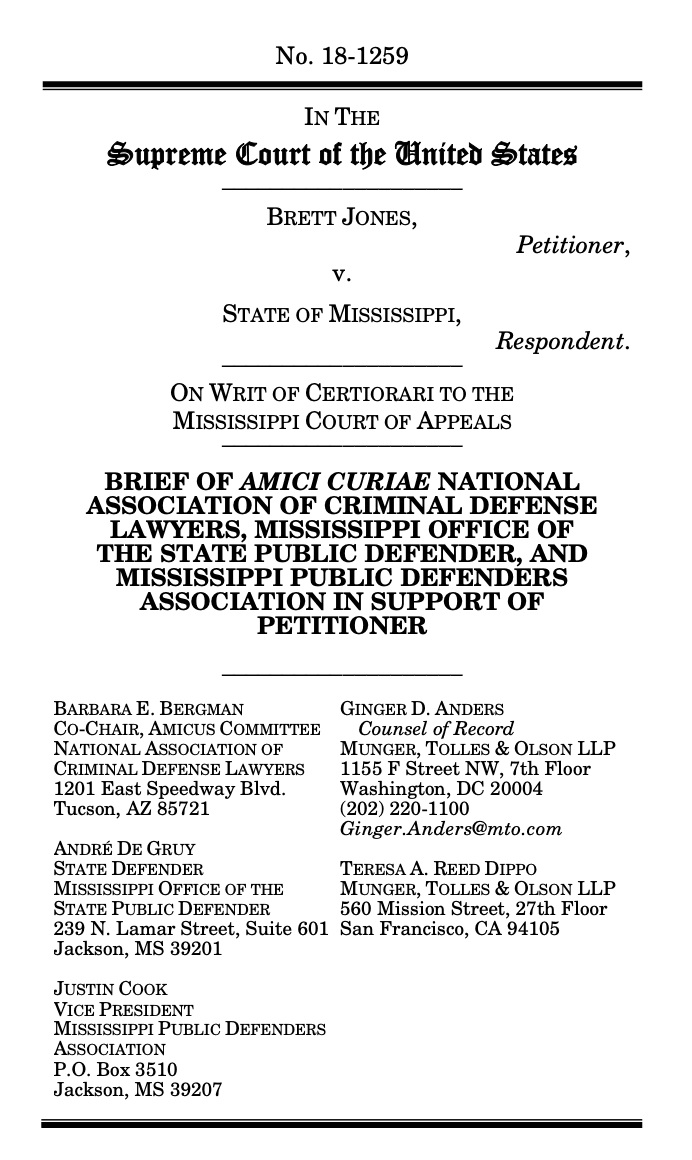
Summary of Argument
Miller v. Alabama held that a court considering whether to sentence a juvenile to life without parole must “distinguish[] ... between ‘the juvenile offender whose crime reflects unfortunate yet transient imma- turity, and the rare juvenile offender whose crime re- flects irreparable corruption.’ ” 567 U.S. 460, 479–80 (2012) (quoting Roper v. Simmons, 543 U.S. 551, 573 (2005)). While the Court “d[id] not foreclose a sen- tencer’s ability to make th[e] judgment” that a juvenile is irreparably corrupt, thereby justifying a life-with- out-parole sentence, the Court warned that the sen- tence would be “uncommon”—because “children’s di- minished culpability” and “heightened capacity for change” create “great difficulty” in concluding, at the outset, that a child is beyond rehabilitation. Id.
Montgomery v. Louisiana confirmed that “irrepara- ble corruption” (or “irretrievable depravity,” or “per- manent incorrigibility”—terms the Court has used in- terchangeably) is a gating requirement for a constitu- tional sentence of life without parole for a juvenile of- fender. 136 S. Ct. 718, 733, 734 (2016). Montgomery explained that Miller announced a substantive rule because it “rendered life without parole an unconstitu- tional penalty for ‘a class of defendants because of their status’—that is, juvenile offenders whose crimes reflect the transient immaturity of youth.” Id. at 734 (quoting Penry v. Lynaugh, 492 U.S. 302, 330 (1989)). Consistent with precedent, that substantive rule was retroactive “because it necessarily carries a significant risk that a defendant—here, the vast majority of juve- nile offenders—faces a punishment that the law can- not impose.” Id. (quoting Schriro v. Summerlin, 542 U.S. 348, 352 (2004)) (alterations and quotation marks omitted).
Montgomery also addressed the procedural compo- nent of Miller’s rule, explaining that a sentencing hearing in which “youth and its attendant character- istics are considered” would be necessary to “separate those juveniles who may be sentenced to life without parole from those who may not.” 136 S. Ct. at 735 (ci- tation omitted). Addressing Louisiana’s argument that Miller did not require trial courts to make a fac- tual finding of permanent incorrigibility, the Court confirmed that it would “limit the scope” of procedural requirements that “intrud[e] more than necessary” on the States’ criminal justice systems. Id. At the same time, the substantive rule of Miller would be para- mount: States are not “free to sentence a child whose crime reflects transient immaturity to life without pa- role” because “this punishment is disproportionate un- der the Eighth Amendment.” Id.
Four years after Montgomery, states that do not re- quire a determination of permanent incorrigibility in order to sentence a child to life without parole are not reliably implementing the substantive rule of Miller. Mississippi cases illustrate the problems with that ap- proach. Generally speaking, Mississippi courts pre- sume a life-without-parole sentence is justified, and ei- ther avoid the question of permanent incorrigibility al- together, or require the juvenile offender to prove he will never reoffend. The resulting sentences of life without parole violate Miller’s substantive rule be- cause they do not rest on a finding that the offender is more likely than not “permanently incorrigible.”
The safeguard of a finding of permanent incorrigi- bility is necessary to ensure that juvenile offenders re- ceive life-without-parole sentences only when that sentence is proportionate and lawful. The finding re- quirement brings purpose and structure to a sen- tencer’s review of the juvenile offender’s individual- ized circumstances, ensuring that the sentencing anal- ysis is not overwhelmed by the heinousness of the crime, or by the potential risk of immediate release (a consideration that should be left to a later parole board). Sentencers retain discretion to impose life- without-parole sentences on juvenile offenders, but that discretion is properly bounded by “Miller’s central intuition—that children who commit even heinous crimes are capable of change.” Montgomery, 136 S. Ct. at 736.